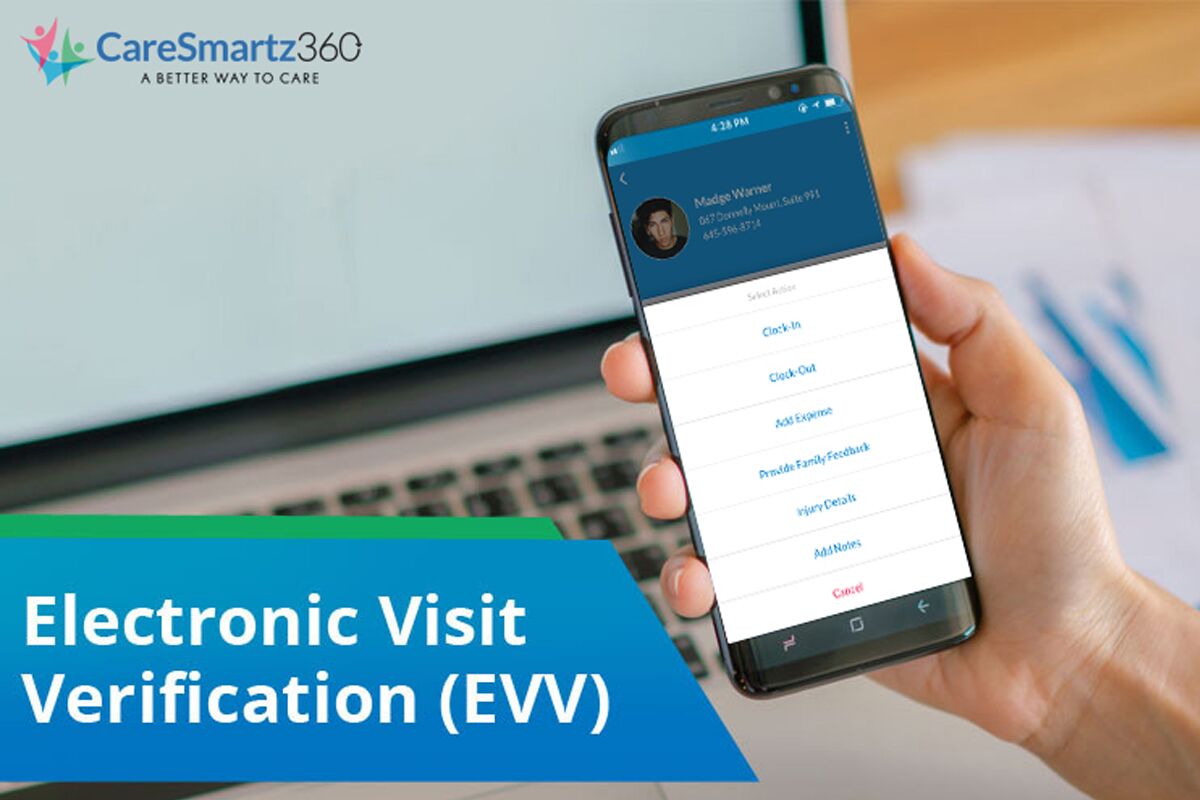
It all began in December 2016, when the 114th US Congress enacted the 21st Century Cures Act. Section 12006 of the Act specifies that it is mandatory for states to implement Electronic Visit Verification (EVV) for Personal Care Services and Home Health Care Services that come under Medicaid by January 1, 2019, and January 1, 2023, respectively.
This will significantly change the way home care agencies provide services.
Through the implementation of EVV systems, the Act aims to curb fraud and improve care quality.
EVV is a technological solution that automates collecting data regarding the service by capturing time, attendance, and care plan details punched in by a caregiver at the point of care.
It helps access information on care delivery in real time to ensure there are no care gaps throughout the service schedule. It helps verify – the type of service performed, the individual receiving the service, the individual providing the service, the date the service was provided, the location of service delivery, and the time the service starts and ends.
While using an Electronic Visit Verification solution, service delivery information can be collected and accessed in many ways. For home care agencies, the ease of use, efficiency, and flexibility of this solution helps them perform business operations with utmost accuracy. The tech integrated within the systems and mobile devices allows the agencies to work even without cellular or wireless connectivity, enables the elderly to confirm care delivery with their signatures, helps recognize unauthorized services, and provides highly controlled access to client data. Meanwhile, read-only features prevent times or costs from being manipulated and create flags for service deliveries that don’t meet specified criteria.
On the functional level, EVV features integrated within the home care software capture and track data. However, features embedded in the software are geared toward helping Medicaid payers reduce readmission rates.
By implementing an EVV software for home care, agencies can benefit in
The 21st Century Cures Act has allowed states to select and implement the EVV model of their choice as long as it meets the minimum requirements. Accordingly, some states have opted for the ‘Open Model’, and some went with the ‘Closed Model’. Another provision to mandate EVV without putting pressure on care providers is through the ‘Provider Choice Model’.
To learn more about the state-wide implementation model and strategies, administrative structure, eligibility, penalty, and deadlines, click on the states given below:
Though EVV was essentially introduced to combat fraud, additionally, it unlocks several benefits for home care agencies and the elderly alike.
For agencies, EVV streamlines operations via capturing data in real-time, facilitating seamless communication, and reducing administrative burdens. Besides, EVV strengthens data security and ensures that the billing practices are precise.
For older adults and families, the implementation of EVV systems means improved care quality. Data visibility in real-time allows for better decision-making and helps identify potential care gaps.
As states continue to become EVV compliant, the home care industry embarks on a new era of accountability, efficiency, and superior care for the elderly.
Our users reported 95% customer satisfaction in 2024. Schedule a personal walkthrough to see CareSmartz360, home care software in action.